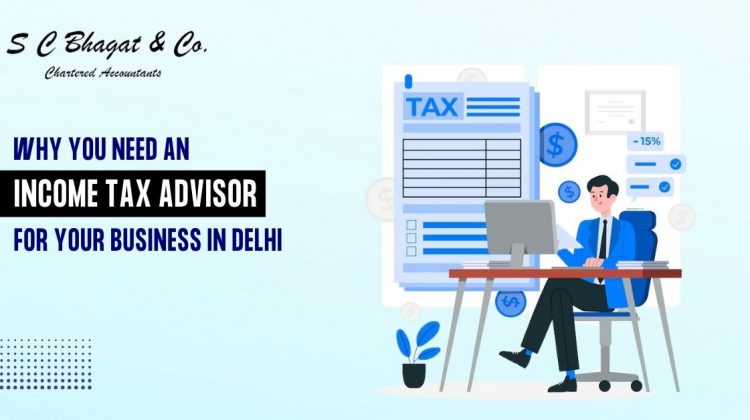Managing taxes for a business isn’t just about crunching numbers—it’s a strategic function that can shape the financial health and future of your enterprise. In a dynamic business hub like Delhi, where competition is fierce and regulations are complex, hiring an income tax advisor is no longer a luxury—it’s a necessity. The stakes are too high to risk non-compliance, overpayment, or poor planning. Let’s explore why partnering with a tax advisor for Your Business in Delhi is one of the smartest business decisions.
Introduction to Business Taxation in Delhi
Overview of the Delhi Business Landscape
Delhi is more than just the capital city of India; it’s a thriving business ecosystem brimming with opportunities. From tech startups in Noida and Gurugram to traditional traders in Chandni Chowk, every type of business thrives here. But with opportunity comes regulation. The Delhi government, alongside the central government, imposes a series of taxes, compliance requirements, and regulatory hurdles that every business must navigate.
With rising entrepreneurial activity, Delhi also witnesses tight scrutiny from tax departments. Businesses are frequently assessed for income tax compliance, transfer pricing, GST accuracy, and more. Without solid tax planning and a clear understanding of these systems, you could easily fall into traps that affect your bottom line.
Regulatory Environment and Tax Obligations
Running a business in Delhi means adhering to various tax regimes, including:
- Income Tax (Corporate or Individual based on structure)
- Goods and Services Tax (GST)
- Professional Tax
- TDS (Tax Deducted at Source)
- Advance Tax Payments
What complicates things is the ever-evolving tax laws and filing deadlines. Regulatory updates and judicial decisions can significantly impact your financial strategy. Without an expert to interpret and implement these changes correctly, businesses can face fines, legal issues, and reputational damage.
The Complexities of the Indian Income Tax System
Direct vs Indirect Taxes Explained
India’s tax system can be intimidating. It includes two major components:
- Direct Taxes: These are levied directly on the income or profit of individuals and businesses, such as Income Tax, Corporate Tax, and Minimum Alternate Tax (MAT).
- Indirect Taxes: These are levied on goods and services, primarily through GST.
Each of these has multiple components, thresholds, exemptions, and varying rates based on income slabs or goods classification. Misinterpreting any part of it can lead to overpayment or severe penalties.
Challenges Faced by Businesses in Delhi
Delhi-based businesses often find themselves juggling multiple tax requirements—many of which change based on industry type, revenue level, and legal structure. Common challenges include:
- Frequent audits and assessments by the IT Department
- Difficulty in understanding exemptions, deductions, and rebates
- Changing tax norms in response to government policies
- Reconciling income tax filings with GST data
For businesses trying to focus on growth, dealing with this bureaucratic maze becomes a significant distraction. That’s exactly where a knowledgeable income tax advisor steps in—to simplify the complex, minimize liabilities, and maximize returns.
What is an Income Tax Advisor?
Role and Responsibilities
An income tax advisor is a trained professional specializing in Indian taxation laws. Their job isn’t just filing returns—it’s about offering comprehensive support that ensures you never miss out on opportunities or fall into legal traps. Here’s what they typically do:
- Strategic Tax Planning
- Preparing and Filing Returns
- Income and Expense Structuring
- Advising on Tax-saving Instruments
- Handling Tax Audits and Assessments
- Liaison with Tax Departments
In a city like Delhi, where business operations are fast-paced and regulation-intensive, a tax advisor becomes your financial partner—navigating complexities so you can focus on what matters: running your business.
Difference Between an Income Tax Advisor and a General Accountant
Think of it this way—an accountant helps you record your transactions and maybe prepares your financial statements. But an income tax advisor goes several steps further:
- Provides tax-saving insights
- Helps you interpret laws
- Advises on investment strategies
- Prepares for future tax liabilities
This makes an income tax advisor not just a number cruncher, but a strategic asset. While both roles are essential, not having a dedicated advisor means leaving money—and legal protection—on the table.
Key Benefits of Hiring an Income Tax Advisor
Accurate Tax Filing
One of the biggest pain points for Delhi entrepreneurs is ensuring timely and accurate tax filing. A single error could trigger scrutiny, delay refunds, or worse, invite penalties. An income tax advisor ensures:
- No errors in return preparation
- Appropriate categorization of income and expenses
- Complete documentation to support claims and deductions
They also ensure timely submission of returns and help you track acknowledgments, notices, and communication from the department.
Strategic Tax Planning and Savings
Tax isn’t just about paying dues—it’s about smart savings. Advisors help businesses:
- Identify eligible deductions
- Choose the right investment tools (Section 80C, 80D, etc.)
- Decide optimal salary structures
- Plan depreciation for capital assets
This way, your business is not only compliant but also cost-efficient.
Avoidance of Legal Penalties
With Indian tax laws becoming stricter, penalties for non-compliance can be hefty. Late filings, wrong declarations, or under-reporting income can result in:
- Hefty fines
- Loss of business licenses
- Court proceedings
Having an income tax advisor ensures all filings are accurate, audits are prepared for, and your business is legally protected.

